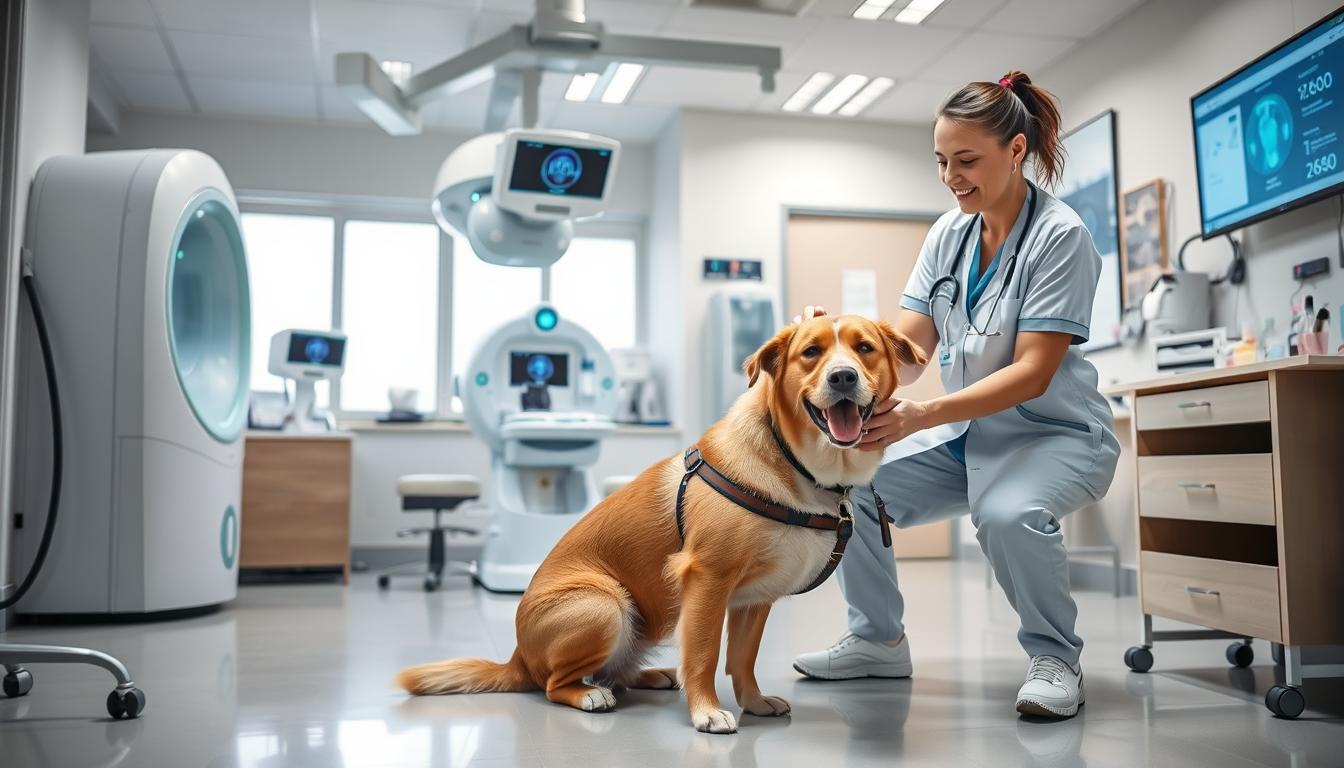Choosing a canine companion is a significant decision that should be made with care and responsibility. Sustainable dog adoption offers a compassionate solution that not only provides a loving home for a furry friend but also supports animal welfare organizations and reduces pet homelessness. By exploring sustainable adoption options, individuals can make a positive impact on their community and the lives of homeless animals.
Sustainable dog adoption involves ethically sourcing pets from reputable shelters and rescue organizations. This practice promotes animal welfare, reduces pet homelessness, and supports community-based initiatives. By choosing adoption, individuals contribute to a more sustainable and compassionate approach to pet ownership, ensuring that every dog has a chance to find a loving forever home.
Understanding Sustainable Dog Adoption Practices
Sustainable dog adoption is a responsible approach to pet ownership that focuses on rehoming shelter animals and supporting ethical rescue organizations. By embracing this mindset, dog lovers can make a meaningful impact on the lives of abandoned or surrendered canines while also promoting animal welfare.
What is Sustainable Dog Adoption?
Sustainable dog adoption emphasizes responsible pet ownership and ethical breeding practices. It involves choosing to adopt a dog from a reputable rescue organization or shelter, rather than purchasing from a breeder or pet store. This helps reduce the number of dogs in shelters and supports the important work of rescue groups in providing care, medical treatment, and finding loving homes for these animals.
Importance of Rescue Organizations
Rescue organizations play a crucial role in the sustainable dog adoption movement. These organizations are dedicated to saving the lives of abandoned, abused, or surrendered dogs. They provide essential care, medical attention, and behavioral training to prepare these animals for adoption into new forever homes. By supporting local rescue groups, dog lovers can directly contribute to the well-being of dogs in need and help promote a more ethical and responsible pet ownership culture.
| Key Statistics | Value |
|---|---|
| Dogs entering American shelters annually | Approximately 3 million |
| Dogs euthanized in shelters annually | Around 400,000 |
| Companion animals entering US shelters yearly | 6.3 million (3.1 million dogs, 3.2 million cats) |
| Pets adopted into new families annually | More than 4 million |
Benefits of Adopting Shelter Dogs
Adopting a dog from a shelter or rescue organization can have a profound and far-reaching impact. Not only does it provide a loving home for a deserving animal, but it also brings a wealth of benefits to the adopter and the community as a whole. Let’s explore the key advantages of this compassionate and sustainable approach to pet ownership.
Reducing Homelessness
One of the primary benefits of adopting a shelter dog is the contribution to reducing pet homelessness. According to recent statistics, an average of 56% of dogs in shelters are adopted annually, helping to alleviate the burden on these facilities and decrease the number of euthanized animals. By choosing to adopt, you directly support the efforts of no-kill animal shelters and pet fostering programs, which are crucial in providing temporary homes and compassionate care for these deserving animals.
Saving Lives
Adopting a shelter dog directly saves a life and helps reduce the staggering number of animals euthanized each year. Shelters in regions with strong adoption programs have seen a 25% decrease in euthanasia rates, a testament to the impact of responsible pet ownership. Your decision to adopt not only transforms the life of your new furry companion but also contributes to the greater good of the animal welfare community.
Lower Costs Compared to Buying
Adopting a rescue dog is a more cost-effective option compared to purchasing from a breeder or pet store. Adoption fees are typically 50% to 70% less than the cost of buying a dog, often including initial veterinary care and vaccinations. This financial advantage allows you to focus on providing your new companion with the best possible care and attention, without the added burden of excessive upfront costs.
| Metric | Percentage/Impact |
|---|---|
| Percentage of dogs in shelters adopted annually | 56% |
| Decrease in euthanasia rates in regions with strong adoption programs | 25% |
| Adoption fee savings compared to buying from a breeder or pet store | 50% to 70% |
| Reduction in waste generated by puppy mills | 2.5 million tons |
| Decrease in resources used for animal care in shelters annually | 30% |
By choosing to adopt a shelter dog, you not only provide a loving home but also contribute to the greater good of the animal welfare community, reduce environmental impact, and enjoy considerable cost savings. Your decision to adopt can have a profound and lasting impact, making a meaningful difference in the lives of these deserving animals and the communities they serve.

Choosing the Right Shelter or Rescue
When it comes to adopting a furry friend, finding the right shelter or rescue organization is crucial. These Animal Welfare Organizations play a vital role in promoting Pet Adoption Awareness and ensuring responsible pet ownership within the community.
Researching Local Shelters
Start by exploring your local animal shelters. Look for organizations that are transparent about their adoption processes, health screening protocols, and post-adoption support. Many reputable shelters engage in Community Outreach Initiatives to educate the public and facilitate successful placements.
Evaluating Rescue Organizations
Rescue groups often specialize in specific breeds or types of animals. Evaluate their practices, including the level of veterinary care provided, behavior assessments, and commitment to the well-being of their rescue animals. Look for organizations that prioritize the long-term happiness of both pets and their adoptive families.
The Adoption Process
The adoption process can vary between shelters and rescues, but generally involves an application, home visit, and sometimes a trial period. Be prepared to provide information about your living situation, family members, and previous pet ownership experience. This helps ensure a good match and a smooth transition for your new four-legged companion.
Remember, responsible Animal Welfare Organizations have the best interests of the animals in mind, and their thorough adoption procedures are designed to set you and your new pet up for success. By taking the time to research and evaluate your options, you can find the perfect addition to your family.
How to Prepare for a New Dog
Welcoming a new furry friend into your home is an exciting time, but it also requires thoughtful preparation to ensure a smooth transition. Whether you’ve adopted a puppy or an adult dog, taking the time to gather essential supplies, create a safe environment, and understand your dog’s unique needs will set the stage for a successful and rewarding experience in Responsible Pet Ownership.
Supplies You’ll Need
Before your new dog arrives, stock up on the necessary items to make them feel at home. This includes high-quality dog food, water and food bowls, a comfortable bed, a variety of toys, grooming tools, and a secure collar or harness with an ID tag. Additionally, consider investing in a sturdy crate or baby gates to help with potty training and establishing boundaries.
Creating a Safe Environment
Ensuring your home is a safe and comfortable space for your new pet is crucial. Thoroughly “puppy-proof” your living areas by securing any potentially hazardous items, such as electrical cords, cleaning supplies, and small objects that could be choking hazards. Designate a cozy and quiet area for your dog to rest and feel secure, and consider setting up an outdoor space for exercise and playtime.
Understanding Your Dog’s Needs
Every dog is unique, with its own history, temperament, and care requirements. Take the time to research your dog’s breed, age, and any special needs they may have. This will help you provide the best possible Compassionate Animal Care, from establishing a feeding schedule to implementing a training plan and addressing any medical or behavioral concerns.
By preparing your home, gathering essential supplies, and learning about your new dog’s individual needs, you’ll be well on your way to a rewarding and Ethical Dog Breeding Practices experience. With patience, consistency, and a lot of love, you and your furry companion can begin building a lifelong bond.
| Essential Supplies | Safety Considerations | Breed-Specific Needs |
|---|---|---|
|
|
|
Promoting Sustainable Pet Ownership
Sustainable pet ownership goes beyond simply finding your furry friend through ethical adoption. To make a lasting positive impact, consider incorporating eco-friendly practices into your pet care routine. From selecting sustainable dog products to supporting local pet services and volunteering, there are numerous ways to promote responsible pet ownership and contribute to the Sustainable Dog Adoption Options movement.
Eco-Friendly Dog Products
When it comes to outfitting your canine companion, opt for products made from sustainable materials. Look for items like bamboo-based pet bowls, hemp dog collars, and toys crafted from recycled plastics. These eco-friendly alternatives not only reduce your pet’s carbon footprint but also support environmentally-conscious brands. Additionally, choose biodegradable waste bags to minimize plastic waste and support responsible disposal methods.
Supporting Local Pet Services
Seek out local pet businesses and services that prioritize sustainability. This could include supporting green pet grooming salons that use energy-efficient tools and sustainable shampoos, or purchasing organic, locally-sourced pet food from neighborhood suppliers. By investing in these local, eco-minded pet services, you’ll be contributing to the growth of a more sustainable pet care community.
Volunteer Opportunities
Get involved with your local animal shelter or rescue organization and explore volunteer opportunities. From fostering homeless pets to assisting with community outreach initiatives, your time and effort can make a significant difference. Participating in pet fostering programs helps reduce the burden on overcrowded shelters, while volunteering for adoption events and educational campaigns promotes the Sustainable Dog Adoption Options message within your community.
By embracing sustainable pet ownership practices, you can not only provide a loving home for your furry friend but also contribute to the broader movement of responsible pet care. Together, we can create a more eco-friendly future for our beloved companions and the planet we all share.
Real-Life Stories of Sustainable Dog Adoption
The power of sustainable dog adoption is best exemplified through the real-life stories that showcase the transformative impact on both the dogs and their new families. These inspiring narratives highlight the remarkable journeys of rescue dogs and the compassionate individuals who have welcomed them into their lives, fostering a deeper understanding of the importance of pet adoption awareness and the vital role that animal welfare organizations play.
Inspiring Adoption Transformations
One such story is that of Bear, an adopted reactive dog whose journey with his owner, Erin, spanned a considerable period, underscoring the commitment and dedication required to address complex behavioral challenges. Despite escalating reactivity and aggressive incidents, Erin’s unwavering efforts, the introduction of positive-focused training techniques, and the integration of specialized methods like Behavior Adjustment Training (BAT), resulted in significant improvements in Bear’s behavior, demonstrating the power of tailored strategies and the resilience of rescue dogs.
Community Engagement in Adoption
The success of sustainable dog adoption is further amplified by the active involvement of local communities. Shelters and rescue organizations often rely on the support of compassionate individuals who volunteer their time and resources to help these animals find their forever homes. From fostering dogs in need to organizing adoption events, community engagement is a crucial component in promoting pet adoption awareness and ensuring the well-being of rescue animals.
How Adopters Make a Difference
Adopters who open their hearts and homes to rescue dogs play a vital role in making a difference. By providing a safe, nurturing environment and addressing the unique needs of their adopted companions, these individuals contribute to reducing pet homelessness and saving lives. Their efforts not only transform the lives of the dogs they welcome but also inspire others to consider sustainable dog adoption, creating a ripple effect of positive change within the animal welfare community.
FAQ
What is sustainable dog adoption?
Why are rescue organizations important for sustainable dog adoption?
How does adopting a shelter dog help reduce pet homelessness?
What should I consider when choosing a shelter or rescue organization?
What do I need to prepare for a new adopted dog?
How can I promote sustainable pet ownership beyond adoption?
Can you share some real-life stories of successful sustainable dog adoptions?

Marissa Delotta, 36, from Dayton, Ohio, is the creative force behind Roverboard.com, a beloved online destination for dog lovers. As a dedicated mom and canine enthusiast, Marissa combines her family experiences with her love for dogs to offer a platform where dog owners can exchange tips, heartwarming stories, and advice. Her website has become a vibrant community for sharing the joys of dog parenting. In her free time, Marissa enjoys exploring dog parks with her family and volunteering at local animal shelters.





